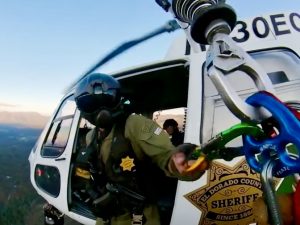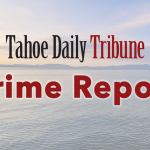Missouri is Launching Legal Sports Betting – Could California Be Next?
The state of Missouri is set to become the 39th legal sports betting market in the United States when bookmakers open for bets in the state on December 1, 2025. Analyst estimates suggest the Missouri market could be worth upwards of $1 billion a year by maturity. However, that, is multiples less than what sports betting in California could bring in. The Golden State is still the economic powerhouse of America, and estimates suggest Californians could spend as much as $4 billion a year on sports betting if legalized. But what are the chances that could happen?
Estimating the odds of legal sports betting in California happening anytime soon is a complex task. Considerations include the changing circumstances around arguments for and against legalization, public opinion, economic conditions and the strength of various stakeholders on both sides of the argument. With an ambitious new plan emerging in recent months, these are the latest moves in an ever-evolving field.
The State of Play and How We Got Here
Only three years ago, California’s voters soundly rejected legal online sports betting. Just 17% of residents voted for Proposition 27, which would have legalized online sports betting. Case closed then, you might think. If public opinion is that dead set against it, surely there’s no chance? Well, as they say, hold your horses on that one.
Since the 2022 vote, six more states have opened legal sports betting markets. Already, bettors are eyeing up the available promotions for DraftKings Missouri which will be ready for December 1 – including deposit matches, parlay insurance, free bets and more. Sportsbooks are known to offer crazy bonuses during the opening months of a new market, and new bettors will be looking for the most bang for their buck.
Just like in Missouri before it legalized, Californians have time and time again polled that they broadly support legal sports betting. Offshore black market sportsbooks are also huge in California, showing the appetite for sports gambling.
However, Proposition 27 failed for other reasons. Three things that contributed to voters rejecting the idea last time around included:
- A campaign that focused on the benefits of sports betting taxes in funding social programs, specifically homelessness prevention, instead of the merits of sports betting itself, which voters often said felt disingenuous
- The exclusion of the powerful California tribal gaming operators from access to the market, which led them to spend $200 million on anti-Proposition 27 ads
- A combination of the above two factors that put a negative air around the whole Proposition
Actual public support for legal sports betting is high, and the offshore market is thriving with Californian customers anyway. If a new Proposition could learn the lessons of the previous campaign then it could be in a with shot.
The Sports Betting Alliance’s Plan Could Change Things
This situation has so far been at a three year impasse. The Sports Betting Alliance (SBA) is an industry trade group representing half a dozen of the nation’s top sportsbooks, including market leaders FanDuel and DraftKings. It has proposed several joint initiatives with the Tribes. But none of them really got going, until earlier this year.
The current Indian Gaming Regulatory Act does not allow mobile sports betting, and the Tribes felt they would be at a competitive disadvantage being only able to offer retail sports betting on tribal lands. This would compensate them for that lost opportunity.
In April 2025 the Californian Nations Indian Gaming Association and the Sports Betting Alliance began discussing a draft plan to push forward with legalization together.
Under this idea, a new body representing the interests of all 109 state tribes would be created and it would be paid a large share of revenues from newly-legal national sports betting operators.
What Might a Legal Market Look Like – and When?
The Tribes would choose how many and which operators they work with, although clearly the current SBA members have some advantage here. Namely:
- DraftKings
- FanDuel
- BetMGM
- bet365
- Fanatics
Caesars Sportsbook already has agreements with Rincon Band of Luiseño Indians and Buena Vista Rancheria of Me-Wuk Indians due to its two Harrah’s branded casinos on California tribal land. So it would probably also have some chance of getting a license.
The revenue sharing agreement seems likely to massively favor the Tribes too, as national sportsbooks are desperate to get in California. It is estimated the market could see up to $4 billion a year in revenue. The current top market is New York, with $2.1 billion in annual revenue, and recently legalized Missouri is expected to hit $1 billion in a few years.
If you were being cynical, you might say the powerful California tribal gaming operators are simply being paid off to allow legal mobile sports betting from national operators. But, however you look at it, the plan does potentially solve the main issue blocking legalization in what would be by far the nation’s biggest sports betting market.
Most likely though, the SBA’s plan won’t put into action anytime soon. Getting all 109 of California’s tribes to agree to any deal is a difficult process, without factoring in what sportsbooks want out of it – and indeed legislators and the public. The betting money is on 2028 for a new Proposition, as any plan probably wouldn’t be ready for the 2026 legislative session.

Support Local Journalism

Support Local Journalism
Readers around the Lake Tahoe Basin and beyond make the Tahoe Tribune's work possible. Your financial contribution supports our efforts to deliver quality, locally relevant journalism.
Now more than ever, your support is critical to help us keep our community informed about the evolving coronavirus pandemic and the impact it is having locally. Every contribution, however large or small, will make a difference.
Your donation will help us continue to cover COVID-19 and our other vital local news.






